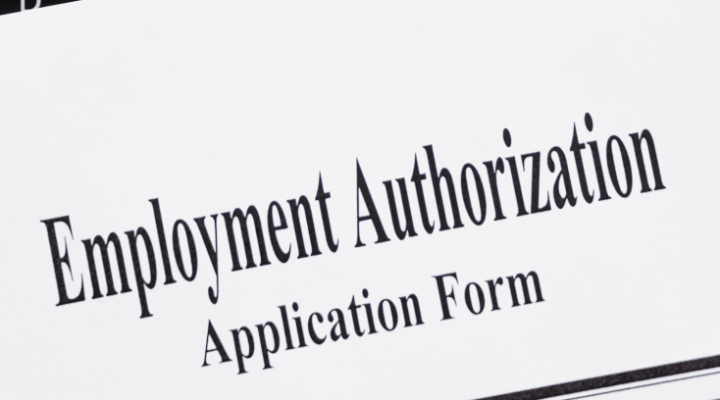The Department of Homeland Security (DHS) has announced a significant policy change affecting noncitizens who rely on Employment Authorization Documents (EADs) for lawful employment in the United States.
Effective October 30, 2025, DHS will end the automatic extension of EADs for most renewal applicants. Under this interim final rule, individuals who file their EAD renewal applications (Form I-765) on or after this date will no longer receive automatic extensions of their existing work authorization while their renewal is pending.
Key Highlights of the New Rule
- EADs filed for renewal on or after October 30, 2025, will not automatically extend.
- Exceptions: Automatic extensions may still apply only when specifically provided by law or through Federal Register notices, such as certain Temporary Protected Status (TPS) categories.
- Any automatic extension already granted before October 30, 2025, remains valid.
- VisaNation recommendation: File EAD renewal applications up to 180 days before expiration to reduce the risk of a lapse in employment authorization.
According to USCIS Director Joseph Edlow, this measure is intended to strengthen vetting and screening procedures before employment authorization is extended. DHS states that the rule “prioritizes public safety and national security by ensuring appropriate vetting before extending work authorization.
What This Means for Employers and Foreign Nationals
This change may significantly affect foreign workers and employers who depend on automatic EAD extensions to maintain uninterrupted employment.
Without the automatic extension, delays in processing EAD renewals could result in temporary gaps in work authorization and potentially lead to I-9 compliance issues.
Employers and HR departments should immediately update their compliance calendars, while foreign nationals should plan renewals well in advance to avoid employment interruptions.
VisaNation Law Group is closely monitoring this development and will provide further guidance as DHS releases implementation details.









